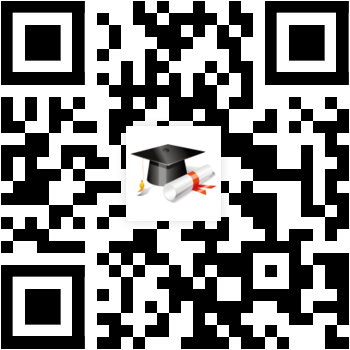2013同等学力申硕英语热点作文素材一:北京雾霾
来源:在职研究生招生信息网 发布时间:2013-04-10 13:11:34
中国在职研究生招生信息网:同等学力申硕考试英语,关注首都北京雾霾,关注我们生存的环境:
With Beijing suffering its fourth bout of heavy smog this month, figures ranging from Chinese premier Wen Jiabao to real estate mogul Pan Shiyi have issued calls for the government and industry to get serious about pollution. But the government's flagship English-language newspaper China Daily is putting the onus on another group to help tackle the smog problem: regular people.
In a front-page story on Wednesday, the paper said a 'joint effort' was required to fight air pollution, arguing that citizens should do their part by taking more public transportation and driving less.
'Tackling air pollution requires input from individuals as well as officials,' the newspaper said, citing experts.
'Everyone is responsible for creating air pollution. No one will act if we all just place our hopes in others,' the paper quoted Du Shaozhong, director of the China Beijing Environment Exchange, as saying.
Civic-minded exhortation, or an effort to shift the blame?
Urging individuals to take responsibility for their impact on the environment lies at the core of environmental movements in the U.S. and Europe. And no one can argue that more people taking public transportation won't help reduce some of the pollution afflicting China's cities not to mention the sclerotic traffic that chokes roads in major urban centers like Beijing. The suggestion is nevertheless problematic in China for a couple of reasons.
First, the contribution of individuals to China's air pollution problem is small compared to that of companies and power plants. The China Daily story quotes Xiao Yan, a 30-year-old lawyer who takes public transportation in Beijing to the dismay of her colleagues, as saying vehicle emissions are 'not much less than those from industry.' That may be true as far as major cities are concerned, but it's also misleading.
Although vehicle pollution is a large and growing source of urban air pollution, it isn't clear how much passenger vehicles are contributing to the smog that has engulfed Beijing over the past few weeks. Almost 80% of fine particulate matter, known as PM2.5, emitted from vehicles in China comes from diesel-powered trucks, which represent less than a fifth of the country's vehicle fleet.
And while Beijing itself is home to relatively few smoke-spewing factories and steel mills, heavy industrial pollution from surrounding areas has a way of blowing over to blanket the city.
The call for individuals to take responsibility for improving China's air also risks falling on deaf ears. China's government, anxious to limit the role and power of civil society, has long positioned itself as the country's ultimate problem solver, making individuals less inclined to see themselves as having the power or the responsibility to tackle social issues themselves.
In a 2011 survey of Chinese people's attitudes toward environmental protection, the World Wide Fund for Nature found 56% of 1,600 respondents agreed at least somewhat with the idea that environmental protection was a government, rather than an individual, issue.
The China Daily did pay lip-service in the end to the notion that individual impacts on China's pollution problem could be limited, quoting Zhou Rong, a climate and energy project manager at Greenpeace, as saying blame for China's pollution problem lies elsewhere.
I agree that people should not drive and then complain about the bad air, but the major problem is still in the structure of the economy and energy consumption, which cannot be changed by ordinary people,' Ms. Zhou told the newspaper.
随着北京第四次遭遇浓雾霾天气,从中国国务院总理温家宝到房地产大亨潘石屹等多位重量级人物都发出呼吁,希望政府和各行业能够严肃对待污染问题。但中国政府旗下最重要的英文报纸《中国日报》(China Daily)则把帮助解决雾霾问题的责任放到了普通民众身上。
在周三的一篇头版报道中,该报说对抗空气污染需要各方共同努力。文章认为市民可以通过多坐公共交通工具、少开车的方式为减少污染做出自己的贡献。
《中国日报》援引专家的话说,解决空气污染问题需要个人和政府的共同努力。
该报援引北京环境交易所(China Beijing Environment Exchange)董事长杜少中的话说,每个人都要对空气污染问题负责。如果我们只是把希望寄托在别人身上,那么没有人会采取行动。
这是具有公民意识的劝告,还是为了推卸责任?
敦促个人为自己对环境造成的影响承担责任是欧美环保运动的核心。没有人可以否认的是,更多人乘坐公共交通工具有助于在一定程度上减少困扰中国各大城市的污染问题,更不用说这还能降低北京等各大中心城市的道路拥堵问题。但是这一建议在中国是有问题的,理由如下:
首先,相比企业和发电厂,个人对中国空气污染问题的“贡献”要小得多。《中国日报》这篇报道援引北京一位30岁律师肖艳(音)的话说,机动车尾气排放量并不比工业废气少很多。就大城市而言,这么说或许没错,但这同样具有误导性。肖艳在北京总是使用公共交通工具,但她的同事对此不以为然。
虽然机动车尾气排放是造成城市空气污染的一大源头,而且排放量还在不断增加,但乘用车对雾霾天气的形成起到多大作用现在还不清楚。过去几周,北京都笼罩在雾霾中。在中国,机动车排放出来的PM2.5细微颗粒物,有大约80%来自柴油卡车,这类车在中国总体机动车中的比例不到五分之一。
虽然北京吐黑烟的工厂和钢铁厂相对较少,但周边地区严重的工业污染会随着风刮到北京,并覆盖整座城市。
要求个人肩负起改善中国空气质量责任的呼吁有可能会被人们当作耳旁风。急于限制公民社会角色和权力的中国政府长期以来都将自己定位成国家问题的最终解决者,这让百姓不太觉得自己有权力或责任解决社会问题。
世界自然基金会(World Wide Fund for Nature)2011年对中国人环保态度的调查发现,在1,600名受访者中,有56%的人至少在一定程度上认同这样一种观点,那就是环保是政府的事,跟个人没太大关系。
不过,《中国日报》文章最后还是稍微提到了个人对中国污染问题影响有限的观点。文章援引绿色和平组织(Greenpeace)气象和能源项目经理周荣(音)的话说,中国污染问题的责任另有出处。
周荣对《中国日报》说:我也同意,人们不应一边开车一边抱怨空气差,但主要问题仍在于经济结构和能耗,这些是普通百姓改变不了的。






















